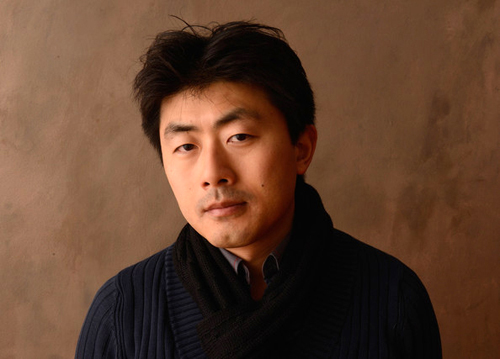By Andrew Hamlin
Northwest American Weekly

Zhao Qi
Chinese director and producer Zhao Qi spent several years making “Fallen City,” a documentary about the devastating effects of the 2008 Sichuan Earthquake in China. The film premieres July 28 on PBS as part of the “POV” series.
NWAW: How did the “Fallen City” project get started?
Zhao Qi: I started Fallen City on May 15th, 2008, three days after the earthquake. I didn’t know what I was to shoot at the moment. Everything was chaotic; it was an intuition that I felt a big story was to be found. I stayed longer than a journalist should when they turned their focus on the Olympics in August. Finally, we stayed for over three years to cover the passage of time and change of life. It took us almost another whole year for the post-editing to work out the final narrative.

NWAW: Where exactly was the film shot?
Zhao Qi: The film was shot in Beichuan, a mountainous prefecture in Sichuan Province.
NWAW: How difficult is it to get cooperation from the Chinese government in making a film of this type?
Zhao Qi: I had no problem shooting this film. Maybe there are too many crews shooting different things at the time, no one paid attention to us. Almost no one came up to ask, as we only shot ordinary people. There were only a few times that we were asked in the latter part of production, and we explained that we were covering the stories of the earthquake victims and have been following them for years.
NWAW: How did you go about finding people to film? Did you struggle to locate people who would talk on camera?
Zhao Qi: I met over 15 people in the very beginning, who all lost someone in the earthquake. I lost contact with some of them when they were on the move in the first half year. I followed around seven or eight people in the first year and got closer with four of them in the second year.
I developed trust with these four families, and they were willing to talk in front of cameras and shared their feelings with us. I always feel grateful to these people, to allow us to get into their hearts!
NWAW: What was/were your specific role(s) on this film, and how did you go about business?
Zhao Qi: I am director and producer of “Fallen City.” I am working on both the creative part and the business part. It is quite a tough experience. As there is no fund in China for independent filmmakers to apply, all Chinese independent filmmakers want to find more sources from international funding. It is not an easy journey, we need to prepare western-standard proposals and a budget. I was lucky to have IDFA Fund, Sundance Fund, NHK, ITVS, Knowledge Network, YLE, NRK, all join the project.
NWAW: What were the most demanding aspects of the film, and how did you surmount them?
Zhao Qi: The narrative has been very challenging. I have three characters with very loose connections to each other in real life; figuring out how to weave their stories together is very hard. I finally decided to link each part not with linear logic of happenings in life, but with similar emotions that can dissolve from one character to another.
This has weakened the compactness of the story, but gives the film a poetic style. It is a choice.
NWAW: What are your favorite and least-favorite aspects of the film?
Zhao Qi: I love this film very much. I believe the film has carried a wide spectrum of human nature rather than just criticism of the rehabilitation of disaster. However, many reviews only focus on the missing role of the government, which is not the full message.
NWAW: What lies ahead for the film after its television debut?
Zhao Qi: POV has a great community engagement plan and I am very much inspired by their work. It is pretty new for me. We never have the chance to do that in China for independent films. I have great expectancy over that. So far, I haven’t got any interest in theatrical release for the film; I hope it is still possible that after its debut on TV. (end)
For the exact time of “Fallen City” on “POV,” check local listings for your local PBS channel.
Andrew Hamlin can be reached at info@nwasianweekly.com.


